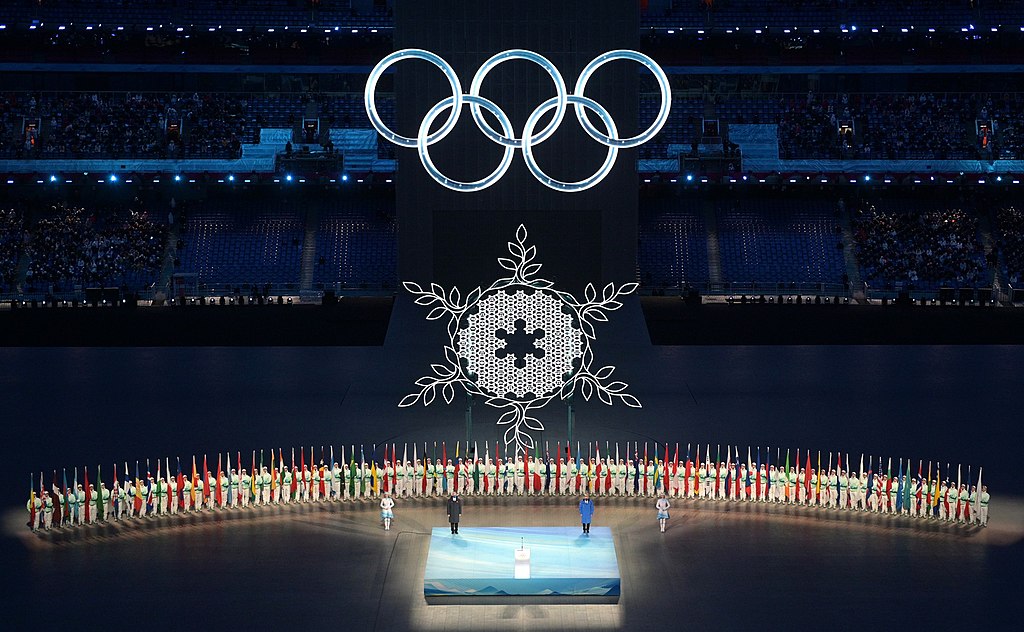Vladimir Putin attended the opening ceremony of the XXIV Winter Olympic Games in Beijing. On the blue field are Cai Qi (left) and Thomas Bach (right) / Presidential Executive Office of Russia / Flickr / 4 February 2022 / CC BY 4.0
The 2022 Olympics have been underway for about a week now, and amid the excitement and patriotism of cheering on our American athletes, there is controversy brewing under the surface of the ice.
What’s hidden behind the curtain is China’s dark past and history of human rights abuses against the Uyghur population in the Xinjian region.
This past December, the Biden administration announced the U.S. official political boycott against the Olympics in China.
The White House announced that there would not be any U.S. officials or diplomatic representation at the games, but that they would still cheer on the U.S. athletes who will still compete.
They’ve announced that they are taking this stance, alongside the United Kingdom and Canada, that they won’t attend a sporting event that feeds into the economy of a country with fundamental Human Rights issues…
The International Olympic Committee has announced that they wish to remain neutral on any political issues because the Olympics are “about and for the athletes.”
There are still some who have strong opinions about it and refuse to watch the games even if it’s just to support the athlete’s dreams.
Twitter has become a battleground of opinions, where a larger portion of the debate has taken place.
I refuse to watch the Genocide Games.
— George Santos (@Santos4Congress) February 7, 2022
Let me know when a country that doesn’t engage in human rights abuses is the Olympic host.
The political debate hasn’t stopped there; American’s are calling out several large sponsors of the Olympic games to either make a statement or pull their sponsorships entirely.
Data from the Morning Consult shows that 3 out of 5 Americans would strongly support or somewhat support companies that pulled out of the games, considering China’s Human Rights abuses.
Even if sponsors didn’t pull out entirely, the results show that 55% of respondents to the survey would still support companies that release a “statement recognizing China’s human rights violations.”
These top sponsors include the likes of Airbnb, Coca-Cola, Visa, Nike, Delta Airlines, and Salesforce.
Despite the clear results showing that people would still support companies that acknowledge this problem, it’s likely that most if not all the brands won’t speak up or pull their sponsorships.




